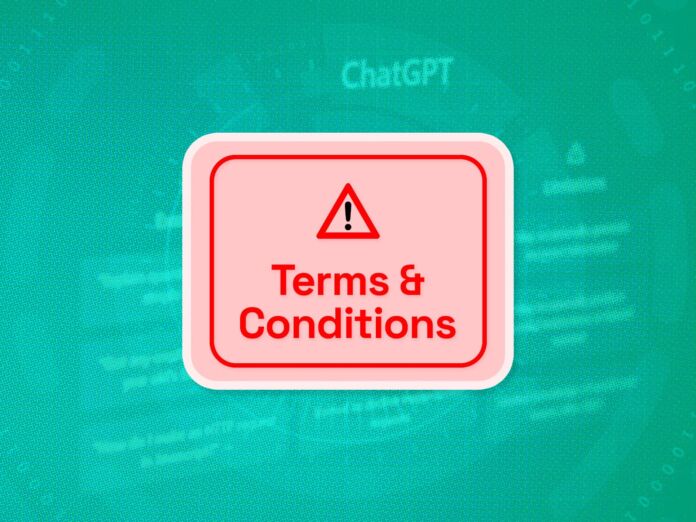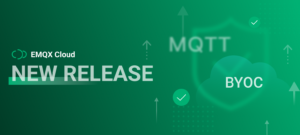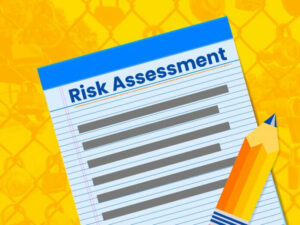
ChatGPT and generative AI have taken the world by storm. As noted in a recent article by Rachel Metz in Bloomberg, in the months since ChatGPT was launched publicly, millions of people have experimented with it and other bots (such as Bard, created by Alphabet Inc.’s Google). This new wave of AI chatbots is already being harnessed for everything from helping plan vacations to acting as an impromptu therapist, raising questions not just about how these systems can be used but also how the companies process the prompts people type into them. However, the policies for ChatGPT continue to change.
“ChatGPT and generative AI have taken the world by storm.”
With generative AI and any (new) AI creative tool, questions arise about who owns the content and even the queries we type in that generate the content. And can any content created with generative AI tools fall into the category of IP?
New Rules: ChatGPT
Since coming onto the market, ChatGPT has made changes to content, queries, ownership, and the policies at OpenAI. Do you think ChatGPT and prompts are private? Think again. Every prompt and every output used to be fair game for improving the “services.” The Ts and Cs have changed several times. Good news: On March 14, 2023, the Terms of Use and Privacy Policy was updated April 7, 2023. And even more recently on April 25, according to ChatGPT’s blog, they introduced the ability to turn off chat history, stating:
“Conversations that are started when chat history is disabled won’t be used to train and improve [ChatGPT’s] models, and won’t appear in the history sidebar. These controls, which are rolling out to all users starting today, can be found in ChatGPT’s settings and can be changed at any time. We hope this provides an easier way to manage your data than our existing opt-out process. When chat history is disabled, we will retain new conversations for 30 days and review them only when needed to monitor for abuse, before permanently deleting.“
In the same post, ChatGPT also announced that it is working on a new business subscription for professionals who need more control over their data as well as enterprises seeking to manage their end users.
A new export option in settings makes it much easier to export your ChatGPT data and understand what information ChatGPT stores. These seem like positive steps that give the user reassurance that when they are engaging with the tool as part of their professional or own creative work.
While Bloomberg says, “OpenAI is aiming to make people feel more comfortable using the chatbot for all kinds of applications,” the overarching point is that when working with generative AI, beware of the tools you’re using as you generate output – you may not own or be in control of the outcomes as you think you are.
Any engagement with these tools and the content they produce should also be considered within a larger framework tied to IP and IP assets that can be made as part of a strategy that increases your company’s revenue and valuation for your company.
Who Owns What?
AI-generated content is not generally IP registrable, and the challenge is to devise how it can lead to content or the refinement of an idea through generative AI experiments that can be registered as IP.
According to a recent Harvard Business Review article from April 7, 2023, Generative AI, which uses data lakes and question snippets to recover patterns and relationships, is becoming more prevalent in creative industries. However, the legal implications of using generative AI are still unclear, particularly regarding copyright infringement, ownership of AI-generated works, and unlicensed content in training data.
The article continues. Courts are currently trying to establish how intellectual property laws should be applied to generative AI, and several cases have already been filed and decided. To protect themselves from these risks, companies that use generative AI need to ensure that they are in compliance with the law and take steps to mitigate potential risks, such as ensuring they use training data free from unlicensed content and developing ways to show the provenance of generated content.
Ruben Hassid who brands himself as “an obsessed AI-content creator” on LinkedIn with the tagline “Master A.I. before it masters you” and with 143,602 followers is quick to point out a plethora of other content-related AI tools, stating, “Staying on top of AI = Staying on top of tools. Never fall behind with these 27 AI sites.” These AI tools include applications for audio, video, and voice. In short, these tools are all springboards into thinking about ideas that could theoretically lead to IP.
Intellectual Property Assets
Intellectual Property (IP) assets are powerful – patents are inventive solutions to problems. IP is an indicator of innovation and provides a barrier to competition; if it’s in a growth sector, that combination attracts investors. And that allows for additional growth through new equity capital or growth financing you might not otherwise acquire.
IP rights exclude others from operating within your claimed and registered territory. These IP rights increase the valuation of a business because assets have a multiplying effect. A business with IP has exclusive rights that can make an existing business more valuable than its competition. So, if you’re using Generative AI, you need to be clear about what you add and what’s generated by the bot. One is IP registrable, the other is not.
A business with valuable IP may also attract a larger company to acquire it, providing an exit and wealth event for the business owner and any shareholders. Filing a patent is a relatively small cost for the asset you’re creating, and it multiplies the value of your current assets and the business overall. IP assets can give you opportunities you never dreamed of while helping you foster the next generation of dreamers. Everyone wins.
- SEO Powered Content & PR Distribution. Get Amplified Today.
- PlatoData.Network Vertical Generative Ai. Empower Yourself. Access Here.
- PlatoAiStream. Web3 Intelligence. Knowledge Amplified. Access Here.
- PlatoESG. Automotive / EVs, Carbon, CleanTech, Energy, Environment, Solar, Waste Management. Access Here.
- BlockOffsets. Modernizing Environmental Offset Ownership. Access Here.
- Source: https://www.iotforall.com/beware-of-the-changing-rules-of-chatgpt-and-generative-ai
- :has
- :is
- :not
- 1
- 14
- 2023
- 25
- 27
- 30
- 7
- a
- A.I
- ability
- About
- abuse
- acquire
- acting
- add
- Additional
- again
- AI
- Aiming
- All
- allows
- Alphabet
- already
- also
- an
- and
- announced
- any
- appear
- applications
- applied
- April
- ARE
- arise
- article
- AS
- asset
- Assets
- At
- attract
- Attracts
- audio
- barrier
- BE
- because
- becoming
- been
- before
- behind
- being
- Beware
- Bloomberg
- Bot
- bots
- brands
- business
- business owner
- but
- by
- CAN
- capital
- cases
- Category
- challenge
- change
- changed
- changing
- chatbot
- chatbots
- ChatGPT
- claimed
- clear
- combination
- comfortable
- coming
- Companies
- company
- Company’s
- competition
- compliance
- considered
- content
- continue
- control
- controls
- conversations
- copyright
- copyright infringement
- Cost
- could
- created
- Creating
- Creative
- cs
- Current
- Currently
- data
- Days
- decided
- developing
- devise
- disabled
- do
- easier
- effect
- end
- engagement
- engaging
- ensure
- ensuring
- enterprises
- equity
- establish
- Even
- Event
- Every
- everyone
- everything
- Exclusive
- existing
- Exit
- experiments
- export
- fair
- Fall
- feel
- filed
- Filing
- financing
- followers
- For
- Foster
- found
- Framework
- Free
- from
- game
- generally
- generate
- generated
- generation
- generative
- Generative AI
- Give
- good
- Growth
- Have
- helping
- history
- hope
- How
- However
- HTTPS
- i
- idea
- ideas
- if
- implications
- improve
- improving
- in
- include
- Increase
- Increases
- Indicator
- industries
- information
- infringement
- Innovation
- intellectual
- intellectual property
- into
- introduced
- Investors
- iot
- IP
- IT
- ITS
- jpg
- just
- larger
- launched
- Law
- Laws
- lead
- Legal
- like
- made
- make
- MAKES
- manage
- March
- Market
- max-width
- May..
- might
- millions
- Mitigate
- models
- Monitor
- months
- more
- much
- multiplying
- Need
- needed
- never
- New
- news
- next
- noted
- of
- off
- on
- ONE
- only
- OpenAI
- operating
- opportunities
- Option
- or
- Other
- Others
- otherwise
- our
- out
- outcomes
- output
- over
- overall
- overarching
- own
- owner
- ownership
- owns
- part
- particularly
- patent
- Patents
- patterns
- People
- permanently
- plan
- plato
- Plato Data Intelligence
- PlatoData
- plethora
- Point
- policies
- policy
- positive
- Post
- potential
- powerful
- prevalent
- privacy
- privacy policy
- private
- problems
- process
- produce
- professional
- professionals
- property
- protect
- provenance
- provides
- providing
- publicly
- queries
- question
- Questions
- Quick
- raising
- reassurance
- recent
- recently
- Recover
- regarding
- registered
- Relationships
- relatively
- retain
- revenue
- review
- rights
- risks
- Rolling
- rules
- same
- says
- sector
- seeking
- seem
- settings
- several
- Shareholders
- Short
- should
- show
- since
- Sites
- small
- So
- Solutions
- started
- Starting
- stating
- Steps
- Still
- stores
- Storm
- Strategy
- subscription
- such
- Systems
- Take
- taken
- terms
- territory
- than
- that
- The
- the Law
- the world
- their
- Them
- themselves
- These
- they
- think
- Thinking
- this
- Through
- Tied
- time
- times
- to
- today
- tool
- tools
- top
- Train
- Training
- TURN
- type
- understand
- updated
- use
- used
- User
- users
- uses
- using
- Valuable
- Valuation
- value
- Video
- Voice
- was
- Wave
- Way..
- ways
- we
- Wealth
- WELL
- What
- when
- which
- while
- WHO
- will
- Wins
- with
- within
- working
- works
- world
- you
- Your
- zephyrnet









